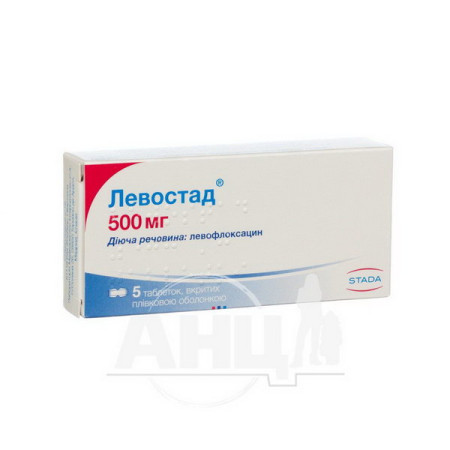Affida Max film-coated tablets 400 mg blister No. 10

Affida Max tablets are indicated for the symptomatic treatment of headache and toothache, dysmenorrhea, neuralgia, back pain, joint pain, muscle pain, rheumatic pain, as well as signs of colds and flu.
Composition
Active ingredient: 1 tablet contains ibuprofen - 400 mg;
Excipients:
Core: corn starch, microcrystalline cellulose, croscarmellose sodium, colloidal silicon dioxide, talc, magnesium stearate. Shell: sucrose; acacia; white suspension: sucrose, acacia, titanium dioxide (E 171), talc, magnesium stearate, calcium carbonate, polyethoxylated castor oil, purified water. Opalux AS 1198 Pink: sucrose, titanium dioxide (E 171), erythrosine (E 127), sodium benzoate (E 211), purified water. Opaglos 6000 white: shellac, white wax, carnauba wax.Contraindication
Hypersensitivity to ibuprofen or to any of the components of the drug. Hypersensitivity reactions (e.g. bronchial asthma, rhinitis, angioedema or urticaria) after taking acetylsalicylic acid (aspirin) or other non-steroidal anti-inflammatory drugs (NSAIDs). History of gastrointestinal bleeding or perforation associated with taking NSAIDs. Active or recurrent gastric and/or duodenal ulcer in history (two or more severe episodes of ulceration or bleeding). Severe renal, cardiac or hepatic insufficiency. Last trimester of pregnancy. Cerebrovascular or other bleeding. Disorders of blood formation or blood clotting. Severe dehydration.Method of application
For short-term use.
The lowest effective dose should be used for the shortest period necessary to relieve symptoms. The patient should consult a doctor if the drug is needed for more than 10 days, if symptoms persist or worsen.
The drug is intended for adults and children over 12 years of age. It is used 1 tablet every 4-6 hours. The tablets should be washed down with water.
Do not take more than 3 tablets in 24 hours.
The maximum daily dose is 1200 mg.
Elderly people do not require special dosage.
Patients with mild or moderate renal and hepatic impairment do not require dose adjustment.
Application features
Pregnant women
Not recommended.
Children
Not prescribed for children under 12 years of age.
Drivers
When used in recommended doses and for the duration of treatment, the drug does not affect the speed of reaction when driving or operating other mechanisms. Patients who experience dizziness, drowsiness, disorientation, or visual disturbances while taking NSAIDs should refrain from driving or operating mechanisms.
Overdose
The use of ibuprofen in children in doses exceeding 400 mg/kg may cause symptoms of intoxication. In adults, the dose effect is less pronounced. The half-life in overdose is 1.5-3 hours.
Side effects
The most common adverse reactions are gastrointestinal and are mainly dose-dependent.
Gastrointestinal tract: abdominal pain, dyspepsia, nausea, diarrhea, flatulence, constipation, vomiting, peptic ulcer, perforation or gastrointestinal bleeding, melena, haematemesis, sometimes fatal (especially in elderly patients), ulcerative stomatitis, gastritis, pancreatitis, exacerbation of colitis and Crohn's disease. Cardiovascular system: heart failure, edema. Nervous system: headache, aseptic meningitis, some symptoms of which (rigidity of the occipital muscles, headache, nausea, vomiting, fever and loss of consciousness) may occur in patients with autoimmune diseases such as systemic lupus erythematosus, mixed connective tissue disease; paresthesia, drowsiness. From the kidneys and urinary system: acute renal failure and papillary necrosis, especially with prolonged use, which is associated with an increase in the level of urea in the blood plasma, edema, renal failure, nephrotoxicity, including interstitial nephritis and nephrotic syndrome. From the liver and biliary tract: impaired liver function, with prolonged treatment, hepatitis and jaundice may occur. From the vascular system: arterial hypertension, arterial thrombosis (myocardial infarction or stroke).Interaction
Ibuprofen, like other nonsteroidal anti-inflammatory drugs, should not be used in combination with:
acetylsalicylic acid (aspirin), as this may increase the risk of side effects, unless aspirin (dose not exceeding 75 mg per day) has been prescribed by a doctor; other NSAIDs, including selective COX-2 inhibitors, as this may lead to an increased incidence of side effects.Storage conditions
Store out of the reach of children at a temperature not exceeding 25 °C.
Shelf life - 5 years.
There are no reviews for this product.
There are no reviews for this product, be the first to leave your review.
No questions about this product, be the first and ask your question.





